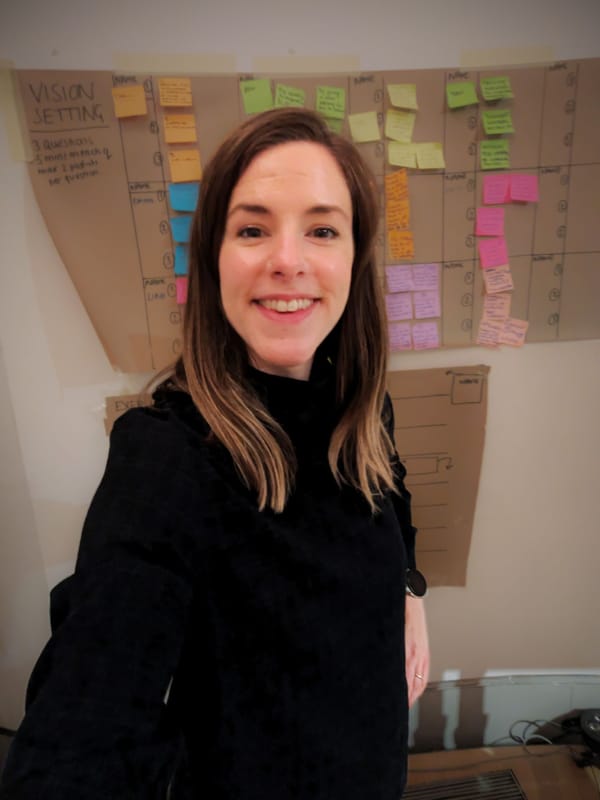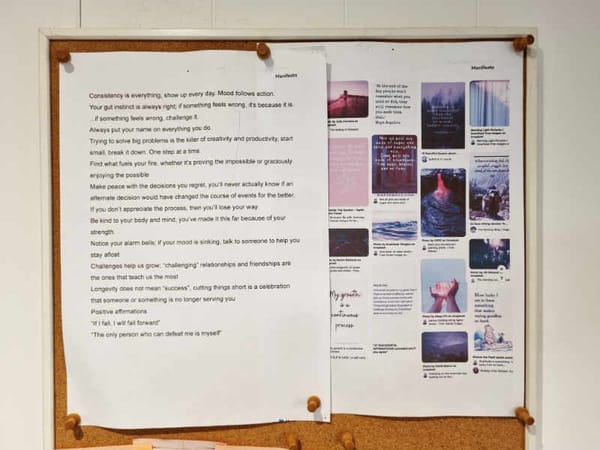The move from contracting to permanent work — what it taught me

In September 2020, I accepted an offer for a permanent role after four years of contracting. It was a big decision to move back into permanent work purely because of the significance of leaving it in the first place. I left a safe permanent role after my confidence was knocked and I felt undervalued so in many ways, I turned to contracting as a way to claw back some self-confidence and grow my sense of worth.
Fast forward to 2020, after four years of some truly incredible contract roles I realised it was no longer ticking the boxes for me. A combination of boring tax reforms, craving of a more permanent community and a little change of pace post-Brexit and COVID led me to look further afield. The move back to permanent work has prompted me to reflect on what I learnt as a contractor and to explore just how much of an impact employment status has on my confidence, values and beliefs.
Self-awareness of what’s working and what could be better
I found that the public sector were way ahead of other sectors in terms of ways of working long before COVID-19 rocked up. Likely they didn’t have much choice due to increased cost of rent of commercial offices in London forcing departments to downsize their office space. This led to active work streams which looked at ways of working and would support employees to have an inclusive experience whether they were considered home or office workers. I remember doing a workshop on hybrid working in 2019 in a central department, exploring the technology and processes to optimise the experience for all. Now everyone is discussing and exploring hybrid working because of COVID-19, I can’t help but feel the organisations I worked with were two steps ahead.
The public sector organisations I worked with had a strong culture of learning. Colleagues, friends and civil servants seemed incredibly self-aware, with clear professional development objectives that they talked about actively in meetings with me. I often heard civil servants outlining a very honest truth in large meetings about failures and opportunities for growth, it was humbling to be a part of that culture but also taught me the value of leaving my ego at the door.
Contracting encouraged readiness to change
Contracting taught me how to adapt to change which I’m eternally grateful for. In every contract, the people, the organisation structure, the ways of working, are all completely different. As part of my onboarding to a new contract, I would run my own personal discovery (sounds very government, I realise) which documents observations and thoughts in a private slide deck. One discovery deck ended up being so popular that it got shared with new starters in one government department I worked in.
With so much change, it’s easy to stumble into internal politics — particularly in a temporary role. I believe most contractors can see internal politics a mile off — and the smart ones avoid it entirely. In any new contract, my sensors were extremely active in detecting power plays and team dynamics. In many ways the first 2–3 months is like playing a game of minesweeper, careful not to step on anything too destructive while still making positive strides forward. I still think this is a useful outlook on any start to a new role purely to get a feel for dynamics before adding to the mix.
But change isn’t just specific to contracting, if COVID-19 showed us anything, it’s that no-one is safe from change regardless of employment status. We live in a hugely volatile and transient world and as individuals our needs change because of life events or moments of realisation, naturally this affects the jobs we do and the perspective we have on those jobs. Permanent work isn’t a way of escaping change.
I found my voice
As a contractor, I’d naturally be positioned as an outsider to an organisation, I’d be lying if I said that didn’t feel vulnerable at times until I started to reframe my role in an organisation. My job was to offer a fresh perspective and to challenge the organisations I worked for, it wasn’t about staying quiet and getting on with it, quite the opposite.
My values are integrity, hard work, consistency and fairness so when something conflicted with these values, it took a huge amount of personal growth to be honest and speak up as a contractor. Trust me, there were many times when I disagreed with the events unfolding around me, and I always felt that as a permanent employee I’d have more of a support team around me in that situation.
Even if I’d found my voice, there were certain teams that weren’t willing to listen. There was one instance where I challenged the tone of voice research that allegedly informed over 100+ pages of content to be re-written, the response I got was defensive, insistent about the research being water-tight— I never found the research.
There have been times where I didn’t speak up, this has taught me valuable lessons too. I remember one particular instance where a male contractor was hired in a role far more influential than mine. I distinctly remember how he copied material from my slide decks and how he effectively re-worded what I said in meetings to make it seem like he knew what he was doing. It added a real fire to my belly knowing he was getting paid, significantly more than me, just to imitate my work. This conflicted with all my values but the nomadic nature of contracting can be quite isolating, even more so when things go wrong.
Since then, I made a point to respect and honour my values by listening to my gut instinct. To be outwardly proud of the work I do, to be unapologetic in meetings and crucially, to raise alarm bells of fraudsters — regardless of their power or employment status.
Value-driven work
I’ve realised that my values of integrity and hard work and my passion of tech-for-good translates well when working with charities which is what I do now in my permanent role. I’m given a similar autonomy and freedom that I had as a contractor, only with the added security of a support team and a community.
I was in a retrospective recently with a client who thanked me for making them think differently. Even more so with charities than any other type of organisation, I see my role as someone who questions decision to ensure the investment is being put towards the right thing for the right reasons. This particular client felt that’s where we added value, which is so rewarding to hear. In the last year, I’ve learnt that the best way to service clients in an agency space is to challenge them in some way. Challenge them to define, to reason, to justify, to aim high.
Confidence to push for change
Contracting did what I wanted it to do. It pushed me into scenarios where I had to step into new and complex projects, battle internal politics and find my voice in adverse situations. In finding my voice, I became aware that speaking up or challenging something wouldn’t actually lead to a contract termination, most of the teams I worked for were receptive to change and valued this — most of them.
I’ve learnt that giving people the answers is a short term solution, it keeps people happy, no egos dented, deadlines met but that doesn’t tie in with my values. In my current role, I’m passionate about understanding what skills and capabilities my clients have and how I can help coach them to a place where they feel confident and enabled. It pushes the emphasis on the client to take ownership of the process, and ultimately, it’s more effective than me doing a one-time-thing, the problem coming back, and the client having to start from scratch again.
Having regular exposure to different organisations is such a healthy way to continually learn and I’m grateful for my role at Manifesto which gives me opportunities to work with inspirational charities. I honestly relish every work experience I have as it allows me to grow my knowledge, experience and confidence so I can continue to do the right thing by my clients — whatever the context.





